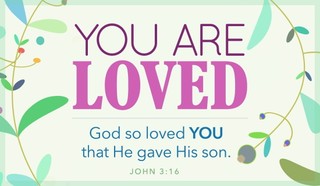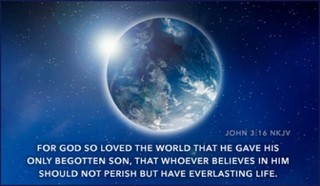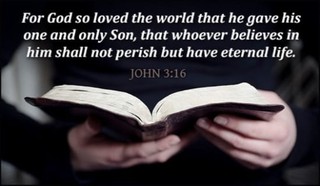
- Recent Translations
- All Translations
Yochanan 3:1-21 Meaning and Commentary
INTRODUCTION TO 1 JOHN 3
In this chapter the apostle exhorts to a holy life and conversation in general, and to the exercise of brotherly love in particular. The former of these is urged from the consideration of the great blessing of adoption, which springs from the free love and favour of God, is unknown to the men of the world, and indeed, in the present state of things, does not appear to the saints themselves in all its fulness and advantages, as it will do in the future state, when the children of God will be like to Christ, and see him as he is; the hope of which should engage them to purity of life and conversation, 1Jo 3:1-3, and this is further enforced from the nature of sin, which is a transgression of the law, 1Jo 3:4, from the end of Christ's manifestation in the flesh, which was to take away sin, and who was without it, 1Jo 3:5, from communion with Christ, expressed by abiding in him, seeing and knowing him, which such must be strangers to that live a sinful course of life, 1Jo 3:6, from this, that only such that do righteousness are righteous persons, and these are righteous as Christ is, 1Jo 3:7, and from a man's being of the devil, that is, of a vicious conversation, who was a sinner from the beginning, and whose works Christ was manifested in the flesh to destroy, 1Jo 3:8, and from the nature of the new man, or that which is born of God, which is not to sin, nor can it, 1Jo 3:9, and from the distinction there is between the children of God and the children of the devil, those not being of God who do not righteousness, nor love their brethren, 1Jo 3:10, from hence the apostle passes to brotherly love, and excites and engages to that, from its being a message which had been heard from the beginning, 1Jo 3:11, which is illustrated by its contrary in the instance of Cain, who by the instigation of Satan slew his brother, because his works were righteous, and his own were evil, 1Jo 3:12, wherefore, it is no wonder that good men should be hated by the world, who, as Cain, are of the same wicked one, 1Jo 3:13, brotherly love is further urged unto, from its being an evidence of passing from death to life, or of regeneration; whereas he that hates his brother openly continues in a state of death, is a murderer, and so has not eternal life abiding in him, 1Jo 3:14,15, and from the great instance of Christ's love, in laying down his life for his people, the saints are incited to lay down their lives for one another; to such a pitch does the apostle carry brotherly love, 1Jo 3:16, wherefore, he that is rich, and is uncompassionate to his brother in distress, cannot be thought to have the love of God dwelling in him, 1Jo 3:17, hence he presses the exhortation to brotherly love, that it be not in profession only, but true, real, and cordial, 1Jo 3:18, and that by observing the advantages of it, as that hereby men know they are of the truth, and can assure their hearts before God; and which is illustrated by the contrary, the condemnation of the heart, 1Jo 3:19,20, the advantages of non-condemnation of the heart are confidence before God, and receiving whatsoever we ask of him; the reason of which is, because his commandments are kept, and things done which are pleasing to him, 1Jo 3:21,22, the commandments are explained of faith in Christ, and love to one another, 1Jo 3:23, and the happiness of them that do them is, that Christ dwells in them, and they in him, the evidence of which is, the Spirit that is given unto them, 1Jo 3:24.

